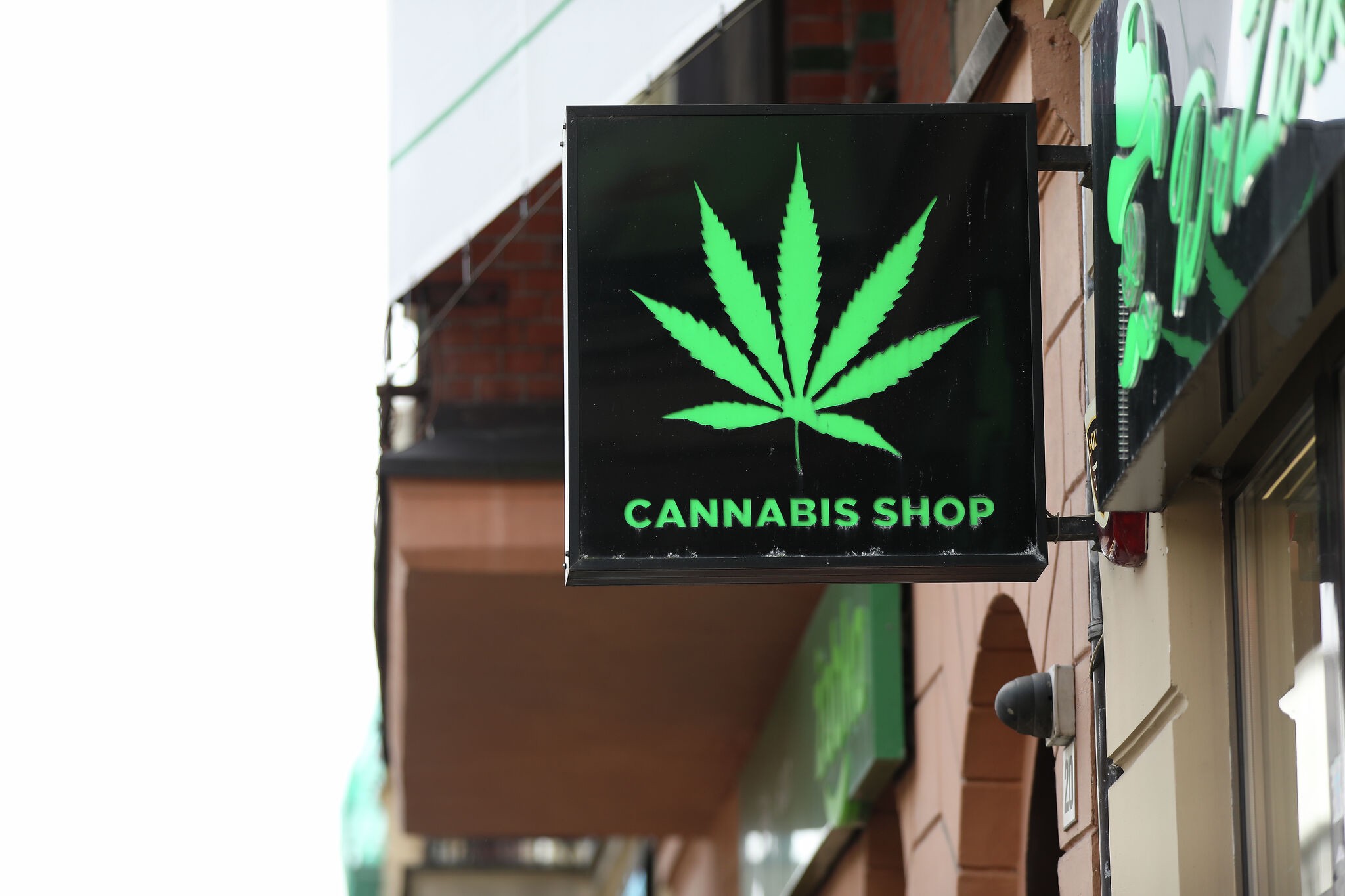news
Texas THC ban dies in legislature. What happens to delta-8, CBD?
Texas lawmakers remain divided over regulating hemp-derived THC products. Here's what to know as the special session ends.
Published September 4, 2025 at 2:53pm by Marley Malenfant

A sign reading 'Cannabis Shop' is seen on the street in Katowice, Poland, on August 10, 2025. (Photo by Klaudia Radecka/NurPhoto via Getty Images)
NurPhoto/NurPhoto via Getty Images
Earlier this year, Senate Bill 3, which sought to ban all hemp-derived THC products — including delta‑8 and delta‑9 THC — except nonintoxicating cannabinoids such as CBD and CBG, passed both chambers but was vetoed by Gov. Greg Abbott on June 22. The governor emphasized regulation over outright prohibition.
During a special session following the veto, legislators reintroduced prohibition measures. The Senate approved Senate Bill 5 in late July, a sweeping ban on detectable cannabinoids, but it died in the House’s Public Health Committee without a hearing before adjournment.
Meanwhile, a more targeted restriction, Senate Bill 2024, took effect on Sept. 1. It bans the sale, marketing, and advertising of vape products containing any cannabinoid — including CBD, delta‑8 THC, and THC — especially those appealing to minors. However, the law does not criminalize possession. Violators face penalties up to one year in jail and/or a $4,000 fine for Class A misdemeanors.
What’s the difference between THC and CBD?
Cannabidiol (CBD) is a non‑psychoactive compound derived from cannabis. Tetrahydrocannabinol (THC) is the compound that causes intoxication or a “high.”
What is hemp?
The Texas Agriculture Code defines "hemp" as "the plant Cannabis sativa L." containing a delta‑9 THC concentration of less than 0.3% on a dry‑weight basis.
What is Delta-8 vs. Delta-9?
Delta-9 is a type of cannabis. It gets its name from the fact that it has 9 THC molecules. Delta-8 THC and delta-9 THC come from the cannabis sativa plant. Unlike CBD, delta-9 THC is psychoactive, which means it can make you feel high or intoxicated.
Delta-8 carries a low amount of hemp (0.3%) and, therefore, is permitted under Chapter 443 of the Texas Health and Safety Code. According to the FDA, delta-8 has psychoactive and intoxicating effects; however, it is generally less potent than delta-9. Delta-8 was considered a scheduled controlled substance, but a temporary injunction filed in Travis County has removed the status.
Can marijuana be used recreationally in Texas?
In Texas and federal law, recreational use of marijuana is still illegal. Depending on how much a person is in possession of, the consequences vary. The Texas Health and Safety Code states that possession of marijuana two ounces or less is considered a Class B misdemeanor.
Is medical marijuana legal in Texas?
Yes — but only in a limited form. The Compassionate‑Use Program, created in 2015, allows low‑THC cannabis for patients with intractable epilepsy. It was expanded in 2021 and again in 2025 to include chronic pain, hospice care and terminal illness, among other conditions.
Qualifying conditions under the current law include:
- epilepsy and seizure disorders
- multiple sclerosis and spasticity
- amyotrophic lateral sclerosis
- autism
- cancer
- post-traumatic stress disorder
- an incurable neurodegenerative disease
- chronic pain, Crohn’s disease, degenerative disc disease and traumatic brain injury (added in 2025)

